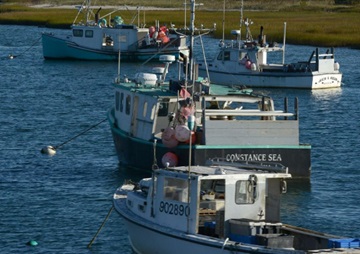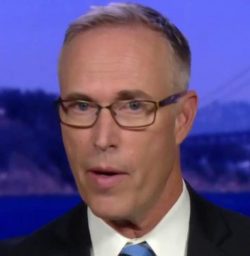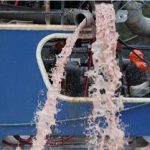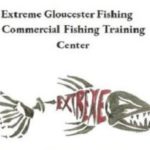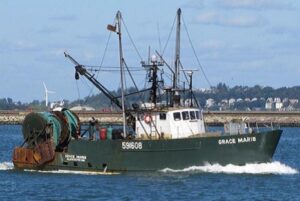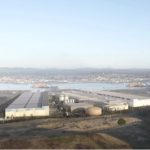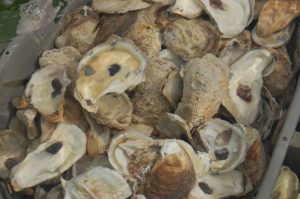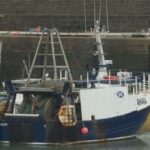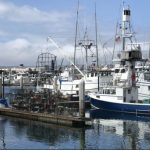Tag Archives: Cape Cod Commercial Fishermen’s Alliance
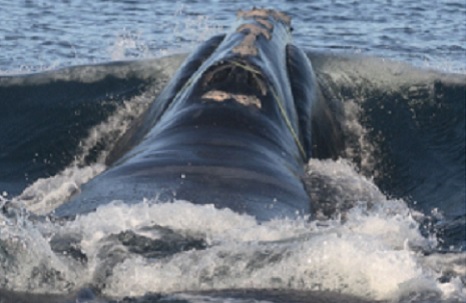
Massachusetts fishermen say feds are hypocritical in Gulf of Maine wind energy designation
A move to designate two million acres in the Gulf of Maine as a hub for wind energy is snagging a sharp hook from Massachusetts fishermen who say the development overlooks risks to the North Atlantic right whale. A handful of Bay State fishermen advocacy groups are teaming with counterparts from across New England in criticizing the Biden administration’s plans to industrialize the area off the coasts of Massachusetts, New Hampshire and Maine. Fishermen, however, say the industrialization of the two-million-acre area is “flatly inconsistent with a policy of endangered species protection.” “Fishermen are disheartened that the WEA designation favors foreign energy developers over marine mammal protection,” the Gulf of Maine Fishing Associations said in a statement last week. “This preferential treatment is in stark contrast to the federal government’s aggressive campaign to burden commercial fishing needlessly with crushing restrictions to protect whales.” more, >>click to read<< 08:43
$500K Earmarked For Cape Cod Fisherman. Here’s What It’ll Go Toward
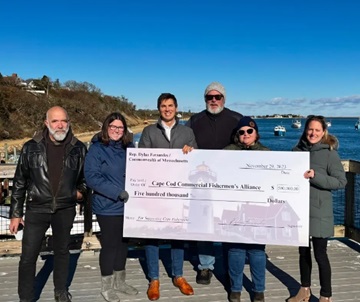 On Wednesday, State Rep. Dylan Fernandes presented that $500,000 in funding to the Cape Cod Commercial Fishermen’s Alliance (CCCFA), with a stated goal to support Cape fishermen and sustainable fishing livelihoods on the Cape and Islands. “Fishing is not just an industry on the Cape and Islands – it is woven into the very culture and fabric of our communities,” said Rep. Fernandes. “These funds are a pathway toward adaptive fishing practices, healthier oceans, and a sustainable industry that can be passed down to future generations of fishing families.” more, >>click to read<< 13:02
On Wednesday, State Rep. Dylan Fernandes presented that $500,000 in funding to the Cape Cod Commercial Fishermen’s Alliance (CCCFA), with a stated goal to support Cape fishermen and sustainable fishing livelihoods on the Cape and Islands. “Fishing is not just an industry on the Cape and Islands – it is woven into the very culture and fabric of our communities,” said Rep. Fernandes. “These funds are a pathway toward adaptive fishing practices, healthier oceans, and a sustainable industry that can be passed down to future generations of fishing families.” more, >>click to read<< 13:02
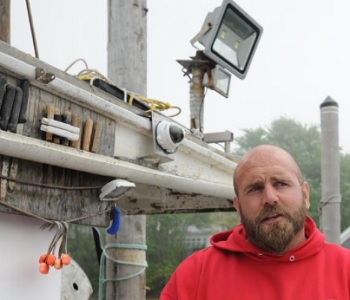
Electronic monitoring long-awaited boon for Cape Cod fishermen
Cape fishermen first started advocating for the use of electronic monitoring in 2006, said Melissa Sanderson, chief operating officer of the Cape Cod Commercial Fishermen’s Alliance. “I would say it’s a long time coming,” said Sanderson of the 14 years it took to finally have approval. But six years ago, Maine fishermen revived interest with their own pilot program and Cape fishermen joined the following year using equipment and technical support provided by The Nature Conservancy and grants from the National Fish and Wildlife Foundation. >click to read< 09:09
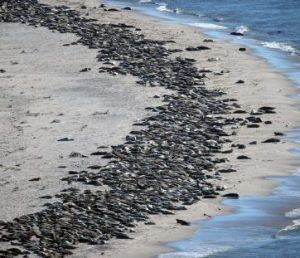
“Human Dimension of Rebounding Population of Seals and White Sharks on Cape Cod.” Study targets public’s views about seals
“We want to bring different perspectives together to see what people value about Cape Cod, see what they understand about the marine ecosystem and the interactions within it,” said George Maynard, research coordinator at the Cape Cod Commercial Fishermen’s Alliance, one of the collaborating organizations. “Seals are one piece in an increasingly complicated environment.” Jennifer Jackman, a professor of political science at Salem State University, is leading the study, “Human Dimension of Rebounding Population of Seals and White Sharks on Cape Cod.” >click to read< 13:12
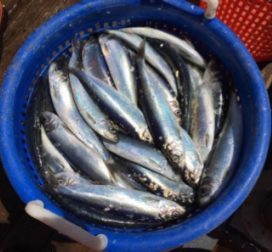
Fishermen’s Alliance: Long-Waged Battle for Herring Won
The formal announcement from the National Oceanic and Atmospheric Administration reflected what much of the Cape wanted, a 12-nautical mile territorial sea boundary from the Canadian border to Connecticut and a 20-mile buffer off the peninsula’s backshore as well as catch limits based on the needs of the ecosystem. Supporters believe the buffer that keeps industrial-sized midwater trawl vessels from taking enormous amounts of herring out of local waters will go a long way towards rebuilding the entire inshore ecosystem and therefore boost the maritime economy. >click to read< 10:10
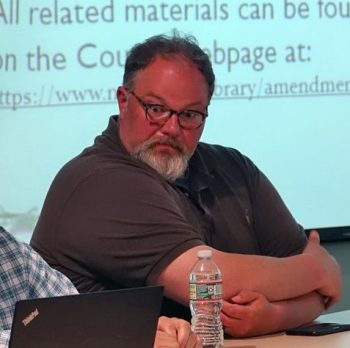
Final stretch for herring protections
“After 10 years of debate, the New England Fishery Management Council has finally accepted the proposals favored by Cape communities and what would keep midwater trawls off our coast year round. It will have benefits for all our commercial and recreational fisheries and the nearshore ecosystem,” said John Pappalardo, chief executive officer of the Chatham-based Cape Cod Commercial Fishermen’s Alliance, which has worked to advance the rules. “This is it,” said Pappalardo. “We need people to speak out for herring one more time to make sure these important rules become a reality.” >click to read< 19:55
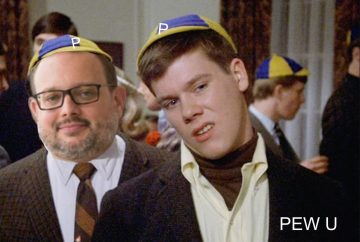
Does Pew win the Forage fish war for the enviro’s? Final Opportunity to Comment on Herring Protections
“After 10 years of debate, the New England Fishery Management Council has finally accepted the proposals favored by Cape communities and what would keep midwater trawls off our coast year round. It will have benefits for all our commercial and recreational fisheries and the nearshore ecosystem,” said John Pappalardo, chief executive officer of the Cape Cod Commercial Fishermen’s Alliance. The protections were vetted by the National Oceanic and Atmospheric Administration and were recently published on the Federal Register for final comment. “This is it,” said Pappalardo. >click to read< 15:55
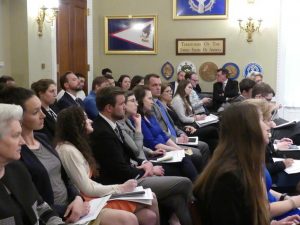
You should read this. Right whale extinction crisis gains momentum on Capitol Hill
Leaders from industry, science and advocacy convened on Capitol Hill this week for a congressional briefing and panel discussion on the North Atlantic right whale extinction crisis. Despite being a busy week in Congress, the room was packed with attendees interested in learning more about the status of the right whale and opportunities for Congress to support the recovery of the species. NRDC cosponsored the briefing and I had the pleasure of presenting on the panel, which was held in cooperation with Representatives Seth Moulton (D-MA) and Jared Huffman (D-CA). The panel provided a compelling overview of the severe threat posed by entanglement, ongoing and future actions aimed at reducing right whale deaths, and the international cooperation needed to secure the whale’s future. >click to read<20:51
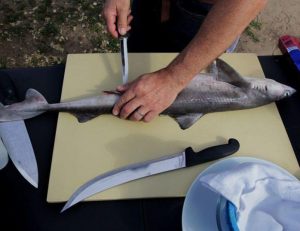
Dogfish harvest to stay same in ’19 as fishermen seek market
Federal ocean managers are allowing the same level of harvest of smooth dogfish, a small species of shark that members of the East Coast seafood industry have tried to find a market for. The National Oceanic and Atmospheric Administration says the smooth dogfish quota will be a little less than 4 million pounds in 2019. Earlier this year, the Cape Cod Commercial Fishermen’s Alliance received a Saltonstall-Kennedy grant of about $37,000 from NOAA for a marketing and promotion project centered on raising the profile of dogfish – including changing the name of the species – to make it more attractive to consumers. >click to read<19:29
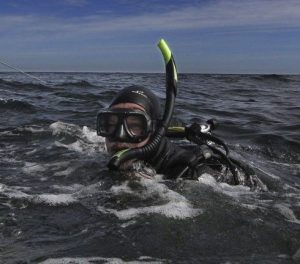
S-K Fund: Salem profs win $296K for Cape Ann project to developing to mussel aqua-farm
Two Salem State University marine researchers will receive just over $296,000 in Saltonstall-Kennedy grant funds to expand their project aimed at developing offshore commercial shellfish aquaculture, the National Oceanic and Atmospheric Administration announced Thursday. The project by SSU marine biology professor Mark R. Fregeau and SSU colleague Edward Maney Jr. is the only North Shore-based project included among the 38 projects nationally that will receive a slice of the $9 million NOAA is doling out in the 2018 Saltonstall-Kennedy funding cycle. >click to read<19:49
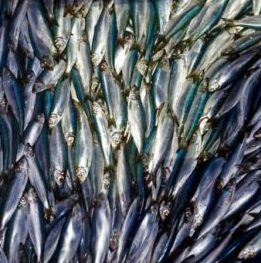
Mashpee Selectmen Push To Move Herring Trawlers Off The Coast
The New England Fishery Management Council, a federal entity, will host several public hearings to solicit comments on possible alternatives under consideration in an amendment to the Atlantic Herring Fishery Management Plan. More specifically, the council is seeking feedback from the public on which alternatives should be selected and why. One of those amendments includes forcing fishing vessels called midwater trawlers 12 miles off the Cape Cod shore.,,, But the operators of these midwater trawlers contest the proposed amendment,,, Mary Beth Tooley, a representative of O’Hara Corporation in Maine, says that about 80 percent of the Maine lobster fishery uses herring as bait. “That’s thousands of lobstermen that will be impacted,” >click to read<20:13
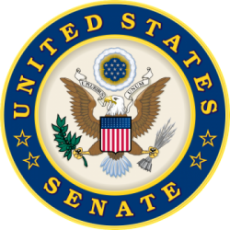
Booker, Carper, Nelson Introduce Bicameral Bill to Establish Grant Program for Right Whale Conservation
U.S. Senators Cory Booker (D-NJ), Tom Carper (D-DE), and Bill Nelson (D-FL), along with Senators Bob Menendez (D-NJ) and Kirsten Gillibrand (D-NY) have introduced a bill to protect the highly endangered North Atlantic right whale. Booker is a member of the Senate’s Environment and Public Works Committee, Carper is the top Democrat on the Environment and Public Works Committee, and Nelson is the top Democrat on the Senate’s Commerce Committee, which oversees ocean policy. Rep. Seth Moulton (D-MA), along with Reps. Raul Grijalva (D-AZ), Jared Huffman (D-CA), and Bill Keating (D-MA), has introduced a companion measure in the House of Representatives. >click to read<18:46
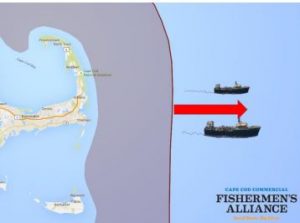
Cape and Islands Lawmakers Join Fight to Protect Offshore Herring
The Cape Cod Commercial Fishermen’s Alliance is receiving support from the Cape and Islands legislative delegation in protecting offshore herring for local fishermen. Earlier this month, the lawmakers called on the New England Fishery Management Council to create a buffer zone off the coast of the Cape and Islands from large-scale mid-water herring trawlers. Current regualtions allow the trawlers to fish three miles offshore from Provincetown past the Islands. click here to read the story 13:34
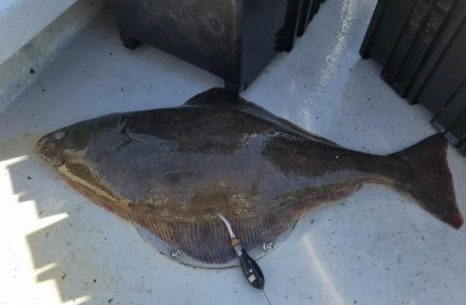
Cape Cod fishermen have high hopes for halibut
On the U.S. side of the border Atlantic halibut are listed under the Endangered Species Act and fishermen are limited to one fish per trip. Less than a half a day’s steam to the east, the same fish is the poster child for sustainable fishery management and generates between $100 million and $200 million a year for Canadian fishermen. It’s a divergence shrouded in mystery as deep as the ocean on either side of the Hague Line, the boundary that separates the two nations out to the 200 mile limit of their exclusive economic zones. The target date to rebuild the U.S. Atlantic halibut stock to healthy levels is 2056, nearly 40 years in the future. click here to read the story 07:49
Cape Groups say Stop wiping out herring close to shore
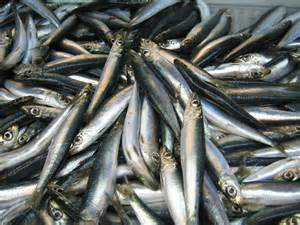 Herring loom large in the history of Cape Cod — it’s no coincidence that pretty much all of our towns have a “Herring River,” nor that one of the first public positions created in Colonial days was “herring warden,” charged with overseeing one of the community’s most important economic resources… In an effort to preserve the species, we have stopped people from scooping up so much as a single herring from our runs. Yet millions of river herring are killed just offshore and denied the chance to reproduce. It makes no sense.This is only one reason the Association to Preserve Cape Cod and the Cape Cod Commercial Fishermen’s Alliance have come together to call on federal regulators to create a buffer zone around the Cape to stop midwater herring trawling in our waters. click here to read the story 21:59:
Herring loom large in the history of Cape Cod — it’s no coincidence that pretty much all of our towns have a “Herring River,” nor that one of the first public positions created in Colonial days was “herring warden,” charged with overseeing one of the community’s most important economic resources… In an effort to preserve the species, we have stopped people from scooping up so much as a single herring from our runs. Yet millions of river herring are killed just offshore and denied the chance to reproduce. It makes no sense.This is only one reason the Association to Preserve Cape Cod and the Cape Cod Commercial Fishermen’s Alliance have come together to call on federal regulators to create a buffer zone around the Cape to stop midwater herring trawling in our waters. click here to read the story 21:59:
NMFS Requests Comment on a Change to Bluefin Regulations
 NOAA is seeking public comment regarding a request from the Cape Cod Commercial Fishermen’s Alliance for an exemption from a regulation that prohibits having unauthorized gear on board while fishing for, retaining, or possessing a bluefin tuna. In their application, the Alliance suggest that the use of electronic monitoring, already required by federal fishing authorities is a sufficient at-sea monitoring to verify that the catch of bluefin tuna occurred on authorized gear.,,, The National Marine Fisheries Service is accepting public comment on the matter. Comments must be received by August 1, 2017, and may be submitted online. click here to read the story 15:09
NOAA is seeking public comment regarding a request from the Cape Cod Commercial Fishermen’s Alliance for an exemption from a regulation that prohibits having unauthorized gear on board while fishing for, retaining, or possessing a bluefin tuna. In their application, the Alliance suggest that the use of electronic monitoring, already required by federal fishing authorities is a sufficient at-sea monitoring to verify that the catch of bluefin tuna occurred on authorized gear.,,, The National Marine Fisheries Service is accepting public comment on the matter. Comments must be received by August 1, 2017, and may be submitted online. click here to read the story 15:09
Cape fishermen and environmentalists push to protect herring stocks from “Localized Depletion”
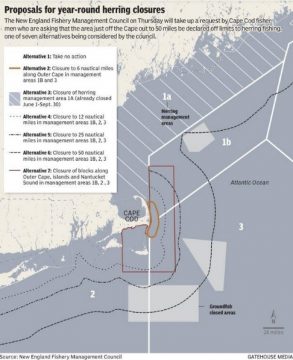 Local fishermen are hoping the New England Fishery Management Council will help protect tuna and other fisheries from the herring fleet by agreeing to have measures asking for year-round closures of up to 50 miles east of the Cape analyzed and included during a vote expected later this year. The council is meeting in Mystic, Connecticut, today through Thursday, when the board will work on herring regulations. “There’s a strong feeling that fisheries that used to happen here have been displaced by 10 years of intense herring removal,” said John Pappalardo, executive director of the Cape Cod Commercial Fishermen’s Alliance, and a member of the New England council and its herring committee. “The haddock resource is robust, but there’s no meaningful haddock fishery close to shore.” Localized Depletion. Are they not considering that with the squid fishery too? Oh yes they are! click here to read the story 08:08
Local fishermen are hoping the New England Fishery Management Council will help protect tuna and other fisheries from the herring fleet by agreeing to have measures asking for year-round closures of up to 50 miles east of the Cape analyzed and included during a vote expected later this year. The council is meeting in Mystic, Connecticut, today through Thursday, when the board will work on herring regulations. “There’s a strong feeling that fisheries that used to happen here have been displaced by 10 years of intense herring removal,” said John Pappalardo, executive director of the Cape Cod Commercial Fishermen’s Alliance, and a member of the New England council and its herring committee. “The haddock resource is robust, but there’s no meaningful haddock fishery close to shore.” Localized Depletion. Are they not considering that with the squid fishery too? Oh yes they are! click here to read the story 08:08
You can listen to all the council action by clicking these links. To read the final agenda, click here Register click here to listen live via webinar.
House Bill Aims to Help Young People Enter Commercial Fishing Industry
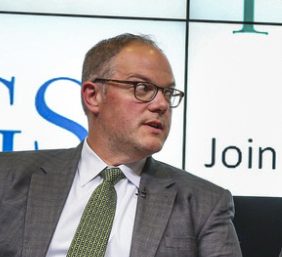 A bipartisan bill has been introduced by the House of Representatives to establish the first national program to help young men and women enter the commercial fishing industry. The legislation, introduced by Congressmen Seth Moulton (D-MA) and Don Young (R-AK), would provide up to $2 million a year in grant funding through NOAA’s Sea Grant Program. “This bill is designed to allow the next generation of fishermen, or people who want to get into the fishing industry, to receive training to become successful businessmen or women,” said John Pappalardo, the CEO of the Cape Cod Commercial Fishermen’s Alliance. Representatives from the Alliance will head to Washington D.C. later this month to join other groups from the Fishing Communities Coalition to lobby lawmakers. “We will be walking Capitol Hill for a couple of days talking about this bill,” Pappalardo said. click here to read the story 16:26
A bipartisan bill has been introduced by the House of Representatives to establish the first national program to help young men and women enter the commercial fishing industry. The legislation, introduced by Congressmen Seth Moulton (D-MA) and Don Young (R-AK), would provide up to $2 million a year in grant funding through NOAA’s Sea Grant Program. “This bill is designed to allow the next generation of fishermen, or people who want to get into the fishing industry, to receive training to become successful businessmen or women,” said John Pappalardo, the CEO of the Cape Cod Commercial Fishermen’s Alliance. Representatives from the Alliance will head to Washington D.C. later this month to join other groups from the Fishing Communities Coalition to lobby lawmakers. “We will be walking Capitol Hill for a couple of days talking about this bill,” Pappalardo said. click here to read the story 16:26
Cape Cod Fishermen Seek Buffer From Mid Water Trawlers
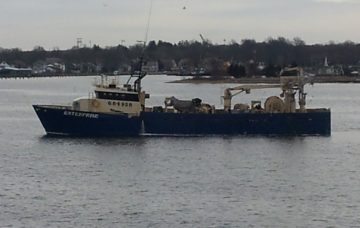 On Aug. 17, the Herring Oversight Committee of the New England Fisheries Management Council voted to send the council two options for establishing a buffer zone prohibiting mid-water trawling off Cape Cod. The zone would extend either 12 miles or 35 miles from shore — significantly farther than the 6-mile zone proposed by the herring industry and closer than the 50-mile mark sought by environmental groups. The council will consider the options when it meets in September. Fishermen have been complaining for years about the industrial-sized ships landing on the back side of Cape Cod, scooping up millions of pounds of herring and leaving, they say, a temporary ocean “bio-desert” in their wake. In 2015, the Cape Cod Commercial Fishermen’s Alliance collected hundreds of comments and individual letters from fisherman about the phenomenon called “localized depletion” — defined as “when harvesting takes more fish than can be replaced locally or through fish migrating into the catch area within a given time period.” Read the story here 16:22
On Aug. 17, the Herring Oversight Committee of the New England Fisheries Management Council voted to send the council two options for establishing a buffer zone prohibiting mid-water trawling off Cape Cod. The zone would extend either 12 miles or 35 miles from shore — significantly farther than the 6-mile zone proposed by the herring industry and closer than the 50-mile mark sought by environmental groups. The council will consider the options when it meets in September. Fishermen have been complaining for years about the industrial-sized ships landing on the back side of Cape Cod, scooping up millions of pounds of herring and leaving, they say, a temporary ocean “bio-desert” in their wake. In 2015, the Cape Cod Commercial Fishermen’s Alliance collected hundreds of comments and individual letters from fisherman about the phenomenon called “localized depletion” — defined as “when harvesting takes more fish than can be replaced locally or through fish migrating into the catch area within a given time period.” Read the story here 16:22
Growth And Diversity Mark 25 Years Of Fishermen’s Alliance
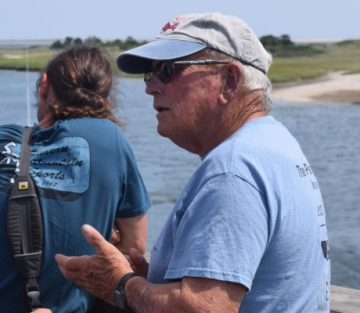 When local shellfishermen wanted help setting up a meeting with officials from the state division of marine fisheries to discuss changes in regulations governing quahog size, they turned to an unlikely source: The Cape Cod Commercial Fishermen’s Alliance. Until fairly recently, few would have made a connection between the Alliance and shellfish. Last year, however, the West Chatham-based organization invested in a 20 percent ownership stake in Aquaculture Researcher Corporation in Dennis, helping save a company that provides dozens of communities with seed shellfish and becoming a player in the Cape’s commercial shellfishing industry. The move is in many ways emblematic of how the Alliance has evolved and grown in the 25 years since it was founded as the Cape Cod Commercial Hook Fishermen’s Association. Read the rest here 09:20
When local shellfishermen wanted help setting up a meeting with officials from the state division of marine fisheries to discuss changes in regulations governing quahog size, they turned to an unlikely source: The Cape Cod Commercial Fishermen’s Alliance. Until fairly recently, few would have made a connection between the Alliance and shellfish. Last year, however, the West Chatham-based organization invested in a 20 percent ownership stake in Aquaculture Researcher Corporation in Dennis, helping save a company that provides dozens of communities with seed shellfish and becoming a player in the Cape’s commercial shellfishing industry. The move is in many ways emblematic of how the Alliance has evolved and grown in the 25 years since it was founded as the Cape Cod Commercial Hook Fishermen’s Association. Read the rest here 09:20
Ilwaco CFA meeting – Out-of-region experts from Cape Cod explain a new path for fisheries
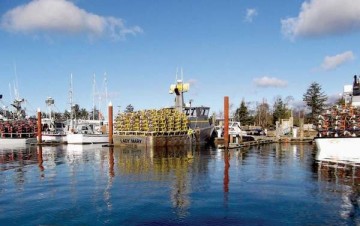 Ed Backus of Collaborative Fisheries Associates said there is no cookie-cutter approach to CFAs and similar entities like fishing-quota banks. Pointing to organizations in California and Massachusetts, Backus said CFAs can be tailored to different fisheries and goals. Presenting talks at the Ilwaco CFA meeting were Paul Parker, director of Cape Cod Commercial Fishermen’s Alliance, and Capt. Jeremiah O’Brien, member and former president of the Morro Bay Commercial Fishermen’s Organization and the Morro Bay Community Quota Fund. The CFA took on $2.5 million in initial debt to acquire fishing rights and paid about half back in five years, Parker said. Initial participants are doing very well, primarily in the Cape Cod scallop fishery, he said. The CFA’s investment in groundfish quota hasn’t proven as useful,,, Read the article here 09:53
Ed Backus of Collaborative Fisheries Associates said there is no cookie-cutter approach to CFAs and similar entities like fishing-quota banks. Pointing to organizations in California and Massachusetts, Backus said CFAs can be tailored to different fisheries and goals. Presenting talks at the Ilwaco CFA meeting were Paul Parker, director of Cape Cod Commercial Fishermen’s Alliance, and Capt. Jeremiah O’Brien, member and former president of the Morro Bay Commercial Fishermen’s Organization and the Morro Bay Community Quota Fund. The CFA took on $2.5 million in initial debt to acquire fishing rights and paid about half back in five years, Parker said. Initial participants are doing very well, primarily in the Cape Cod scallop fishery, he said. The CFA’s investment in groundfish quota hasn’t proven as useful,,, Read the article here 09:53
Working the system makes the system unworkable, by Ronald Smolowitz
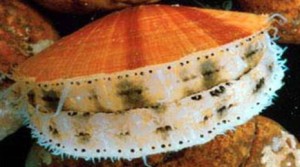 As the owner of Coonamessett Farm in Falmouth and a partner at the Woods Hole Oyster Co., I spend as much time navigating regulatory hurdles as I do tending the farm or going to sea. Many farmers and fishermen have similar fights with overbearing bureaucracy, something likely to become more common as the noose of government regulations tightens.,,Things aren’t much better out at sea. I do a substantial amount of research for the scallop industry, and sustainability is the key reason scallop management is a continued successes. Through a system of rotational management, certain zones are fished while others are left off-limits to allow them to repopulate. Much as with farmland, this system allows the resources to remain sustainable. Read the article, Click here 09:47
As the owner of Coonamessett Farm in Falmouth and a partner at the Woods Hole Oyster Co., I spend as much time navigating regulatory hurdles as I do tending the farm or going to sea. Many farmers and fishermen have similar fights with overbearing bureaucracy, something likely to become more common as the noose of government regulations tightens.,,Things aren’t much better out at sea. I do a substantial amount of research for the scallop industry, and sustainability is the key reason scallop management is a continued successes. Through a system of rotational management, certain zones are fished while others are left off-limits to allow them to repopulate. Much as with farmland, this system allows the resources to remain sustainable. Read the article, Click here 09:47
Dogfish Neck? Cape Skate? Pollock Peninsula? – Cape fishermen anticipated cod collapse
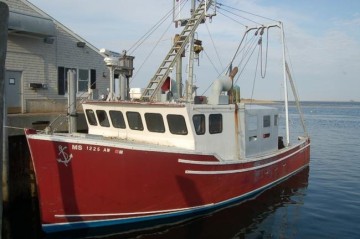 Can this still be Cape Cod without the cod? There still is cod, and they’re still being caught, but the stocks have collapsed and that was further underlined this week when a Georges Bank quota cut of 62 percent to 762 metric tons was proposed by the National Oceanic and Atmospheric Administration’s Fisheries Management Council on Monday. That follows an earlier massive cut during the last three-year management period – totaling a 95-percent reduction over the last four years. Outer Cape fishermen are ahead of the curve – most have already abandoned cod. Read the rest here 07:53
Can this still be Cape Cod without the cod? There still is cod, and they’re still being caught, but the stocks have collapsed and that was further underlined this week when a Georges Bank quota cut of 62 percent to 762 metric tons was proposed by the National Oceanic and Atmospheric Administration’s Fisheries Management Council on Monday. That follows an earlier massive cut during the last three-year management period – totaling a 95-percent reduction over the last four years. Outer Cape fishermen are ahead of the curve – most have already abandoned cod. Read the rest here 07:53
Cheers & Jeers, Treasures that washed ashore this week – Cape fishermen deserve fair share
 While many commercial fishermen, especially big-boat crews out of New Bedford and Gloucester, blame the federal government for the dismal state of the New England fishing industry, the Cape Cod Commercial Fishermen’s Alliance prefers to work with the federal government to manage sustainable fisheries. For example, the Alliance wants to help the feds collect accurate information about fish stocks to help improve fisheries science. In other words, they do not point fingers; they are problem solvers. Which is one reason why we think,,, Read the rest here 11:32
While many commercial fishermen, especially big-boat crews out of New Bedford and Gloucester, blame the federal government for the dismal state of the New England fishing industry, the Cape Cod Commercial Fishermen’s Alliance prefers to work with the federal government to manage sustainable fisheries. For example, the Alliance wants to help the feds collect accurate information about fish stocks to help improve fisheries science. In other words, they do not point fingers; they are problem solvers. Which is one reason why we think,,, Read the rest here 11:32
Cape fishermen say federal money needed for monitors, disaster money should go to offset the observer costs
 A typical skate trip, at 35 cents per pound and grossing $1,100, would be left with less than $400 to split between the boat and crew, said Chatham fisherman Jan Margeson. “We don’t gross enough money to afford this,” said Margeson, who proposed allocating federal disaster money to fishermen who actually carried observers. “This cost should be paid for by the federal government,” said John Pappalardo, chief executive officer at the Cape Cod Commercial Fishermen’s Alliance. “This fishery is bankrupt right now. It’s nonsensical to lay it on a struggling industry.” Read the rest here 09:45
A typical skate trip, at 35 cents per pound and grossing $1,100, would be left with less than $400 to split between the boat and crew, said Chatham fisherman Jan Margeson. “We don’t gross enough money to afford this,” said Margeson, who proposed allocating federal disaster money to fishermen who actually carried observers. “This cost should be paid for by the federal government,” said John Pappalardo, chief executive officer at the Cape Cod Commercial Fishermen’s Alliance. “This fishery is bankrupt right now. It’s nonsensical to lay it on a struggling industry.” Read the rest here 09:45
Group led by Cape Cod Commercial Fishermen’s Alliance buys ARC hatchery
 The Cape Cod Commercial Fishermen’s Alliance was the first to sign on to the effort to purchase the business about eight months ago, according to a joint statement from non-profit organizations, local legislators and towns that has been working on the project. The non-profit group was successful in sparking the interest of several investors, including Wellfleet Shellfish Promotion and Tasting which oversees that town’s OysterFest, and “a consortium of Cape Cod families who understood the important role shellfish play in the local economy and environment,” Read the rest here 13:18
The Cape Cod Commercial Fishermen’s Alliance was the first to sign on to the effort to purchase the business about eight months ago, according to a joint statement from non-profit organizations, local legislators and towns that has been working on the project. The non-profit group was successful in sparking the interest of several investors, including Wellfleet Shellfish Promotion and Tasting which oversees that town’s OysterFest, and “a consortium of Cape Cod families who understood the important role shellfish play in the local economy and environment,” Read the rest here 13:18
Old men on their sea: Experienced fishermen tell their tales on Chatham Fish Pier
 Now semi-retired, Bennett is one of the old salts who greet visitors as part of the Pier Host program sponsored by the Cape Cod Commercial Fishermen’s Alliance. Although Chatham is the biggest fishing port on the Cape, it is home primarily to family fishing operations. They are truly small businesses — often two or three people in a boat doing their part to satisfy the public’s nearly insatiable hunger for seafood. Drawn from the ranks of longtime fishermen, the pier hosts have probably forgotten more about fishing than most visitors will ever know. Read the rest here! 09:48
Now semi-retired, Bennett is one of the old salts who greet visitors as part of the Pier Host program sponsored by the Cape Cod Commercial Fishermen’s Alliance. Although Chatham is the biggest fishing port on the Cape, it is home primarily to family fishing operations. They are truly small businesses — often two or three people in a boat doing their part to satisfy the public’s nearly insatiable hunger for seafood. Drawn from the ranks of longtime fishermen, the pier hosts have probably forgotten more about fishing than most visitors will ever know. Read the rest here! 09:48
Plenty of Fish in the Sea, But Red Tape Keeps Them There
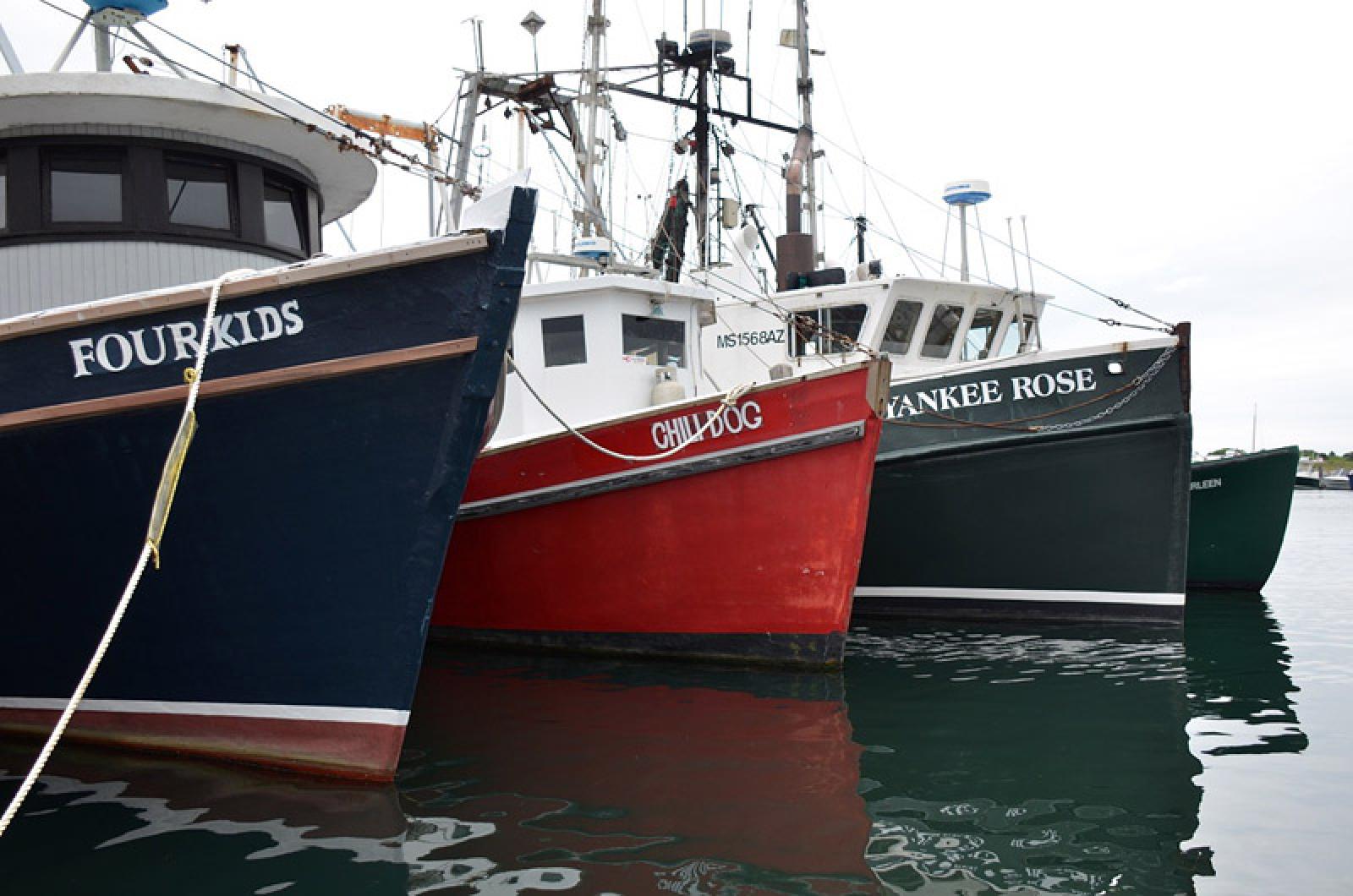 Across the harbor, the famed Unicorn dragger, now rusted and unseaworthy, glowed in the sunlight, a reminder of brighter days for the Island fishing industry. The decay of the Unicorn, and that of her sister ship, the Quitsa Strider II (now gone), has little to do with a lack of fish, Mr. Brighton said. Instead, he said, the main struggle for fishermen these days involves the array of state and federal regulations and the ever-increasing costs associated with a way of life as old as the Island itself. “It’s because we lost our access to those fish,” Read the rest here 10:25
Across the harbor, the famed Unicorn dragger, now rusted and unseaworthy, glowed in the sunlight, a reminder of brighter days for the Island fishing industry. The decay of the Unicorn, and that of her sister ship, the Quitsa Strider II (now gone), has little to do with a lack of fish, Mr. Brighton said. Instead, he said, the main struggle for fishermen these days involves the array of state and federal regulations and the ever-increasing costs associated with a way of life as old as the Island itself. “It’s because we lost our access to those fish,” Read the rest here 10:25






